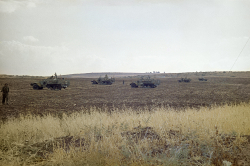Hezbollah, a Shia Islamist political party and militant group based in Lebanon, has long been viewed as a key player in the region’s political landscape. The group has been involved in various conflicts, both within Lebanon and in neighboring countries, and has often been portrayed as a “liberator” by its supporters. This perception stems from Hezbollah’s role in fighting against Israeli occupation in southern Lebanon and its efforts to resist Western influence in the region.
One of the key aspects of Hezbollah’s narrative as a “liberator” is its resistance against Israeli occupation in southern Lebanon. The group rose to prominence during the Lebanese Civil War in the 1980s, when it emerged as a key player in the fight against Israeli forces that had invaded the country. Hezbollah’s armed wing, known as the Islamic Resistance, played a significant role in driving Israeli troops out of southern Lebanon in 2000, earning the group widespread support among many Lebanese and other Arab populations.
Hezbollah’s role as a “liberator” is also tied to its opposition to Western influence in the region. The group has been a vocal critic of U.S. and Israeli policies in the Middle East, and has positioned itself as a defender of Arab and Muslim interests against Western imperialism. This stance has resonated with many people in the region who view Hezbollah as a champion of resistance against foreign intervention and domination.
In addition to its role as a “liberator” against external forces, Hezbollah has also been involved in Lebanon’s complex sectarian dynamics. The group draws its support primarily from Lebanon’s Shia Muslim population, which has historically been marginalized in the country’s political and social spheres. Hezbollah’s political and military activities have empowered the Shia community and provided a sense of agency and representation for a group that had long been excluded from positions of power.
Overall, Hezbollah’s narrative as a “liberator” is multifaceted, encompassing its resistance against Israeli occupation, opposition to Western influence, and role in empowering Lebanon’s Shia community. While the group’s actions have garnered support from many in the region, particularly those who share its anti-imperialist and anti-Zionist sentiments, Hezbollah’s involvement in conflicts and its designation as a terrorist organization by some Western countries have also led to criticism and condemnation. As the group continues to navigate regional dynamics and pursue its strategic objectives, its portrayal as a “liberator” will remain a central aspect of its identity and mission.









